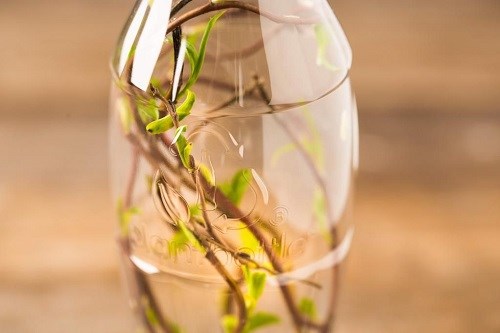Coca-Cola Debuts First 100% Biobased PET Bottle
And the winner is....Coca-Cola appears ahead of the game in the race towards an all-biobased PET beverage bottle.

In the race toward an all-biobased PET bottle, it looks like the Coca-Cola Co. is ahead; last week, it debuted the world’s first such beverage bottle at the World Expo 2015 in Milan.
With its PlantBottle packaging strategy—which entails the conversion of natural sugars found in plants into the ingredients for making PET, the company made its first foray in 2009 when it began to produce PET bottles based on 30% plant-based renewable material (monoethylene glycol made from sugarcane ethanol).
The new 100% biobased PET bottle is based on technology developed by biofuels and biochemical company Virent, Inc., Madison, Wis., which enables the company to produce its BioFormPX (paraxylene) from beet sugars vs. fossil fuels. Paraxylene is the key raw material used to produce DMT/PTA (dimethyl terephathalate/purified terephthalic acid) monomers, which account for 70% of PET’s composition.
Virent produced the plant-based paraxylene at its demonstration plant in Madison. Taiwan-based Far Eastern New Century then worked with Virent and Coca-Cola to convert the paraxylene into a renewable PET resin. Virent has been working with Coca-Cola since 2011, and the latter’s major investment in 2014 is supporting the expansion of Virent’s demonstration plant. “Coca-Cola’s support of our plans for the BioFormPX material in the next-generation of PlantBottle packaging is critical in attracting manufacturing investment from the PET supply chain,” stated Virent’s CEO Lee Edwards.
According to Edwards, Virent is pursuing construction of a commercial-scale plant to help Coca-Cola scale up production of the 100% renewable content bottles. But there is nothing further to announce at this time, he said in a statement released at the June 3 debut. “We’ve had several sales of the material to other companies for them to go through the same kind of ‘validation’ testing of the material for use in other PET products, such as apparel.”
To date, Coca-Cola has produced 35 billion bottles that are 30% plant-based, and its aim it to have commercial production of the 100% plant-based bottles by 2020. Nancy Quan, Coca-Cola’s global R&D officer said,“This is a pioneering milestone within our company’s packaging portfolio. Our vision was to maximize game-changing technology, using responsibly sourced plant-based materials to create the globe’s first fully recyclable PET plastic bottle made entirely from renewable materials.”
Want to find or compare materials data for different resins, grades, or suppliers? Check out Plastics Technology’s Plaspec Global materials database.
Related Content
-
Why Are They Blending Biopolymers?
A sit-down with bioplastic producer Danimer Scientific showed me there are more possible answers to that question than I had previously thought.
-
Advanced Biobased Materials Company PlantSwitch Gets Support for Commercialization
With participation from venture investment firm NexPoint Capital, PlantSwitch closes it $8M bridge financing round.
-
Best Practices for Purging PHA and PHA/PLA Blends
Because bioplastics are processed at lower temperatures, purging between jobs requires a different process and purging agents than those applied for traditional resins.















